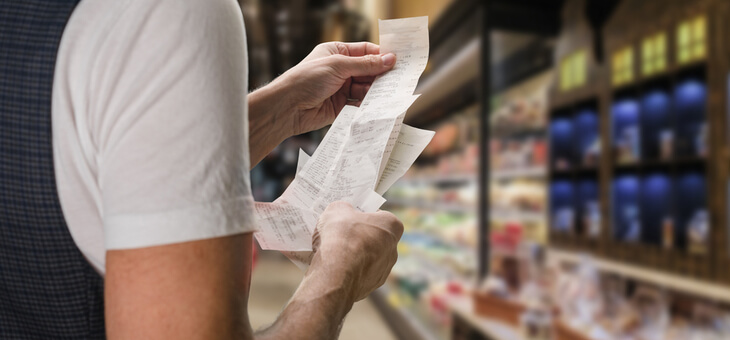Higher costs are the theme of the week. The hike in living costs in the December quarter were announced on Tuesday followed by news that your weekly trip to the supermarket is about to get more expensive as retailers pass on rising food costs.
Coles, Woolworths and Aldi have been urged to increase prices to help offset soaring freight costs caused by the Omicron crisis.
A new survey of 45 suppliers reveals that businesses plan to increase product prices by around 6.8 per cent on average this year, says The New Daily.
While consumers can expect price hikes on groceries and frozen and fresh food, it may not necessarily be a given for all, with Australia’s largest supermarket chain, Woolworths, still resisting calls to raise prices.
Read: Will jump in living costs lead to Age Pension boost?
Some experts aren’t so optimistic and say higher grocery costs will flow to the checkout at their local supermarket in the near future.
“Shoppers should start to expect to see some lift in prices, even across dry groceries,” retail expert Gary Mortimer told TND. “Ultimately, suppliers and food manufacturers can’t continue to hold cost rises.”
The price of food from farms and factories was becoming more expensive before the Omicron wave. Staff shortages and supply chain woes have blown out the cost of getting food from these suppliers onto supermarket shelves.
As reported earlier this week, inflation in red meat and fresh food categories was already rising faster than wages growth late last year.
Read: Time to break supermarket duopoly, say experts
Inflation had already reduced purchasing power for the big supermarkets, but suppliers now face an average 11.3 per cent increase in costs mostly due to supply chain pressures and rising wages, leading to 90 per cent of those surveyed planning to lift prices this year.
Most of the price hikes will take place in the first six months this year with around 15 per cent of suppliers planning multiple hikes later in the year.
“Price increases are coming now and are large,” said analysts Ben Gilbert, Keegan Booysen, Carlos Cacho and Ivana Ye, adding that a 6.8 per cent rise in wholesale prices could be the highest ever quartile increase experienced by the industry.
“This, however, will not likely be enough to fully offset supply cost pressures. We suspect this may lead to further [price] increases.”
Read: What the average Aussie says you must earn to be ‘rich’
Grocery suppliers blame supply chain issues for higher costs. The Omicron staffing crisis has also led to logistics companies charging ‘COVID levies’. Suppliers also have many workers in isolation.
Bare shelves at the larger supermarkets are evidence that food is more difficult to move around and what is left on shelves is also getting pricier.
However, Woolworths, Coles and Aldi pull a lot of power in their negotiations with suppliers, which may yet keep the price of groceries from blowing out, says Professor Mortimer.
He says big chains will try to avoid passing on higher costs to consumers – even at their own expense.
“The supermarkets have indicated they’re going to do their very best to maintain lower prices or withhold rising costs,” said Prof. Mortimer.
“Strategically, they don’t want to be going out lifting prices … particularly when Australian families have done it tough for some time.”
It is highly likely that price rises in fresh food categories and red meat will be unavoidable, he conceded.
A Woolworths spokesperson said while it is mindful of its suppliers’ cost pressures, Australia’s largest supermarket chain will assess calls for price rises on a “case by case basis”.
“We’re working hard to ensure customers can access great value across their weekly shopping needs,” said the spokesperson.
Have you noticed supermarket prices rising? Where do you shop? Have you tried the independent supermarkets? Why not share your shopping tips in the comments section below?
If you enjoy our content, don’t keep it to yourself. Share our free eNews with your friends and encourage them to sign up.

